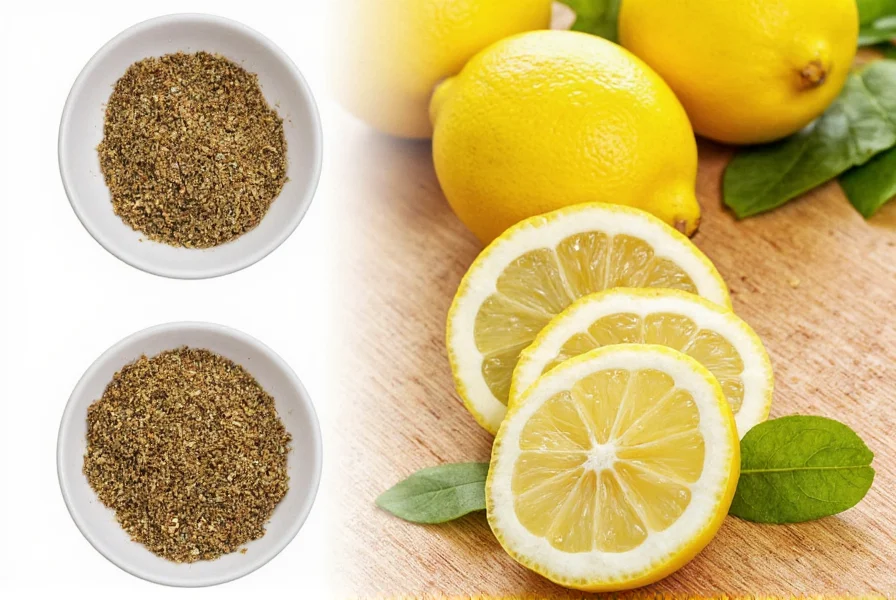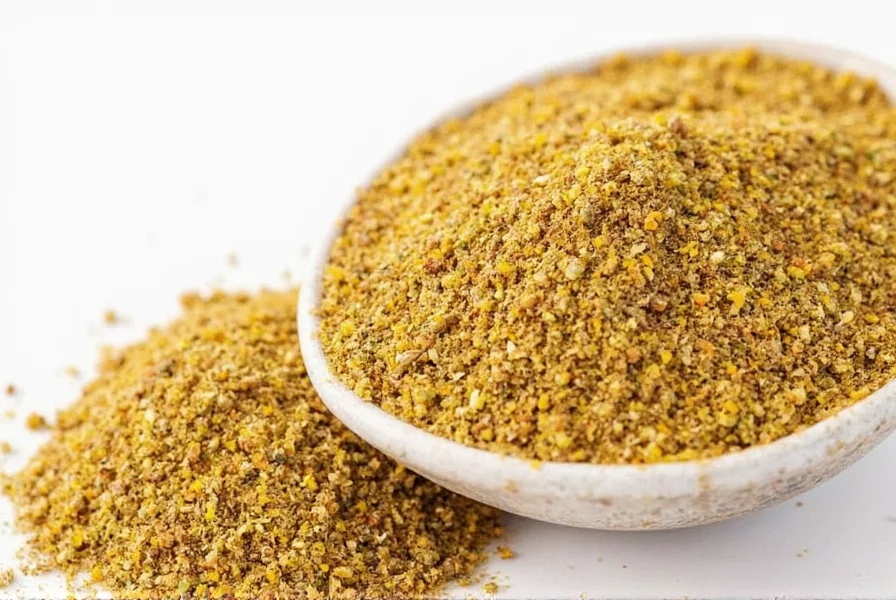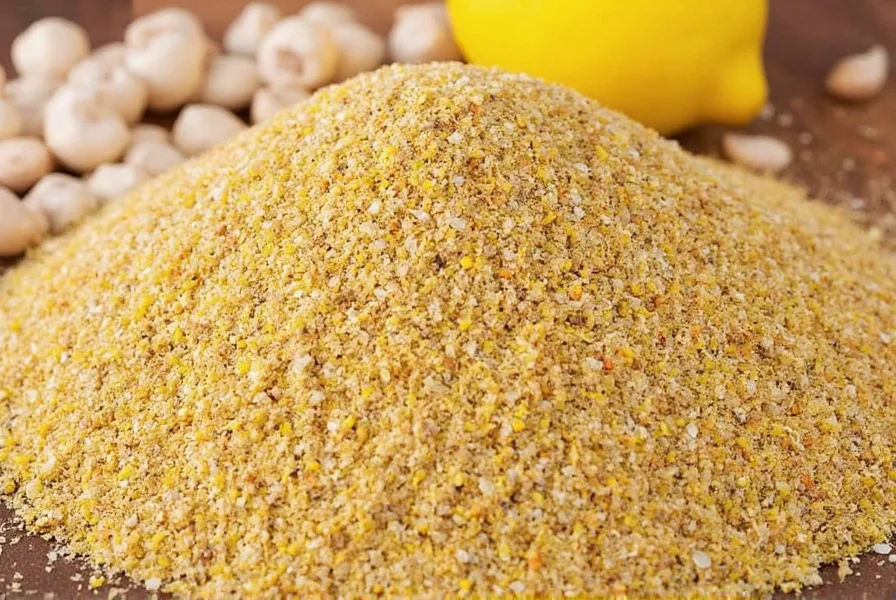Understanding what makes an exceptional lemon pepper seasoning starts with recognizing its fundamental components. The ideal blend maintains a careful balance between the tart, aromatic qualities of lemon and the sharp, warming sensation of black pepper. Most commercial versions contain additional ingredients like salt, garlic powder, or onion powder, but the purest forms consist solely of lemon and pepper.
Core Ingredients and Quality Considerations
When evaluating or creating lemon pepper seasoning, focus on these critical elements:
| Ingredient | Quality Indicator | Common Issues |
|---|---|---|
| Lemon component | Bright yellow color, strong citrus aroma | Brownish color indicates age or poor drying |
| Pepper component | Coarse grind, visible black specks, sharp aroma | Fine powder suggests age or lower quality |
| Additional ingredients | Minimal additives (salt optional) | Fillers like maltodextrin or anti-caking agents |
For those seeking the best homemade lemon pepper seasoning recipe, start with fresh lemon zest dried slowly at low temperatures to preserve volatile oils. Combine with freshly cracked Tellicherry or Madagascar black peppercorns for maximum flavor complexity. The optimal ratio typically ranges from 2:1 to 3:1 (lemon to pepper) depending on desired intensity.
Practical Culinary Applications
Chefs consistently rank lemon pepper as one of the most versatile seasoning blends for multiple cooking methods. Unlike liquid lemon preparations, this dry blend adheres well to proteins and vegetables without creating steam that prevents proper browning.
Consider these professional pairing recommendations when determining what foods pair best with lemon pepper seasoning:
- Seafood: Sprinkle on salmon fillets before pan-searing or incorporate into shrimp marinades (use 1-2 teaspoons per pound)
- Poultry: Rub under chicken skin or mix with olive oil for roasted turkey
- Vegetables: Toss with roasted asparagus, broccoli, or potatoes during the last 10 minutes of cooking
- Salads: Whisk with olive oil and vinegar for an instant dressing
- Grains: Stir into cooked quinoa or rice for added dimension

Creating Superior Homemade Lemon Pepper
While store-bought options provide convenience, crafting your own homemade lemon pepper seasoning recipe delivers noticeably brighter flavor. Follow this professional method:
- Zest 3 organic lemons using a microplane grater (avoid white pith)
- Spread zest on parchment paper and dry in oven at 170°F (77°C) for 2-3 hours
- Grind dried zest to fine powder using a spice grinder
- Mix with 3 parts freshly cracked black pepper (medium-coarse grind)
- Add 1 part sea salt if desired (optional)
- Store in airtight container away from light and heat
This preparation method preserves the volatile citrus oils that give lemon its characteristic aroma. Commercial products often use lemon oil or artificial flavorings that lack the nuanced complexity of real dried zest.
Storage and Freshness Preservation
Proper storage significantly impacts how long your lemon pepper seasoning maintains flavor. Exposure to light, heat, and moisture degrades both the lemon compounds and volatile pepper oils. Follow these storage guidelines:
- Use dark glass or opaque containers rather than clear plastic
- Store in a cool, dark pantry (not above the stove or near dishwasher)
- Avoid refrigeration which introduces moisture
- Replace after 6 months for optimal flavor (mark containers with dates)
Notice fading color or diminished aroma? These indicate your blend has lost potency. Properly stored homemade versions typically outlast commercial blends by 2-3 months due to the absence of anti-caking agents that accelerate flavor degradation.
Substitution Strategies and Common Mistakes
When you need a substitute for lemon pepper seasoning, consider these professional alternatives:
- Equal parts lemon zest powder and freshly cracked pepper (closest match)
- Citrus-infused sea salt with additional black pepper
- Lemon verbena with black pepper (more herbal profile)
Avoid these common mistakes when using lemon pepper seasoning:
- Adding too early in cooking (citrus notes burn off)
- Using on delicate fish (overpowers mild flavors)
- Mixing with other strong spices that mask its unique profile
- Storing in clear containers exposed to kitchen light

Nutritional Profile and Dietary Considerations
Lemon pepper seasoning offers more than just flavor—it contributes subtle nutritional benefits without significant calories. Two teaspoons (about 4g) typically contain:
- 5-10 calories
- Trace vitamin C from lemon component
- Small amounts of potassium and magnesium
- Piperine from black pepper (may enhance nutrient absorption)
Those monitoring sodium intake should check labels carefully, as many commercial blends contain added salt. Creating your own homemade lemon pepper seasoning without salt provides complete control over sodium content while delivering superior flavor.
Final Recommendations for Optimal Use
For the most impactful results with lemon pepper seasoning, apply these professional techniques:
- Add during the last 5-10 minutes of cooking to preserve volatile citrus compounds
- Rub directly onto proteins before cooking rather than mixing into sauces
- Combine with neutral oils (like grapeseed) rather than strongly flavored oils
- Use coarser grinds for grilled foods, finer for dressings and marinades
Understanding these nuances transforms lemon pepper from a simple spice blend into a sophisticated culinary tool that elevates everyday dishes with minimal effort. Whether you choose commercial products or perfect your homemade lemon pepper seasoning recipe, attention to quality ingredients and proper usage makes all the difference.
Frequently Asked Questions
Can I use lemon juice instead of lemon pepper seasoning?
Lemon juice provides moisture and acidity but lacks the concentrated dried lemon flavor and textural element of lemon pepper. For equivalent flavor impact without altering dish consistency, use 1 teaspoon lemon zest powder plus ½ teaspoon black pepper to replace 1 teaspoon lemon pepper seasoning.
Why does my lemon pepper seasoning lose flavor quickly?
Lemon compounds are highly volatile and degrade when exposed to light, heat, or air. Commercial blends often contain anti-caking agents that accelerate flavor loss. Store in an opaque container in a cool, dark place and replace every 6 months for optimal flavor. Homemade versions without additives typically maintain freshness longer.
What's the difference between lemon pepper and lemon herb seasoning?
Lemon pepper focuses primarily on lemon and black pepper, while lemon herb seasoning typically includes additional dried herbs like dill, parsley, or thyme. Lemon pepper delivers a sharper, more direct citrus-pepper profile, whereas lemon herb blends offer more complex, garden-fresh notes suitable for different applications.
Is lemon pepper seasoning gluten-free?
Pure lemon pepper containing only lemon zest and black pepper is naturally gluten-free. However, some commercial blends may contain anti-caking agents derived from wheat or be processed in facilities with gluten-containing products. Always check labels if you require certified gluten-free products, or make your own homemade lemon pepper seasoning for complete control.
Can I make lemon pepper seasoning with other citrus fruits?
Absolutely. Creative variations include lime pepper for Mexican dishes, orange pepper for sweeter applications, or even yuzu pepper for Asian-inspired cuisine. The preparation method remains identical—dry the zest thoroughly before blending with freshly cracked pepper. Adjust ratios based on the fruit's natural sweetness and acidity.











 浙公网安备
33010002000092号
浙公网安备
33010002000092号 浙B2-20120091-4
浙B2-20120091-4